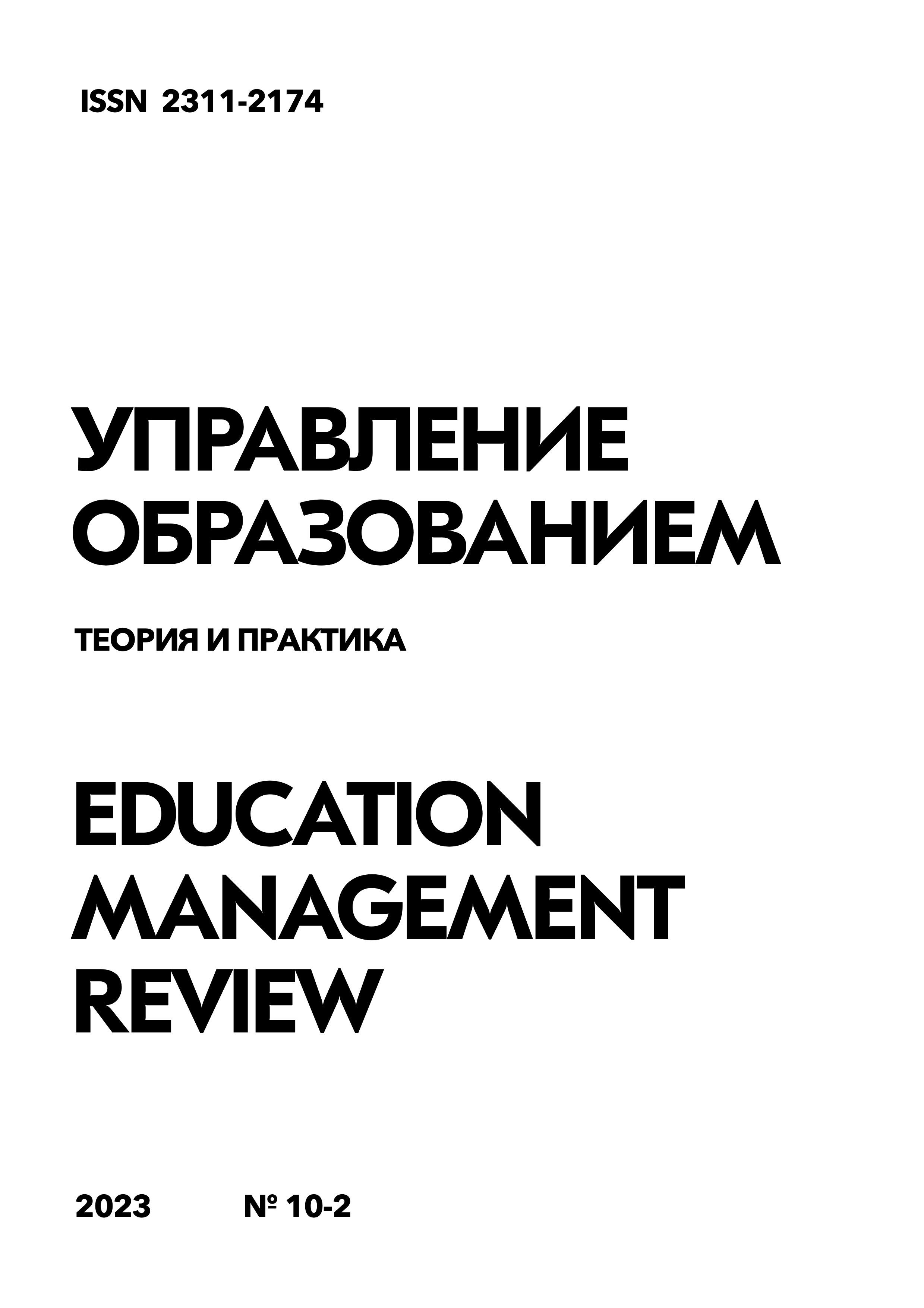The structural function of teaching legal disciplines at the university
DOI:
https://doi.org/10.25726/v0859-5609-7794-gKeywords:
law, science, strategy, paradigm, teachingAbstract
Branch legal comparative studies is a relatively new area of legal knowledge. The structure of this area of scientific research is defined as the internal system structure of the relevant scientific and academic discipline and the entire field of comparative legal research. The formation of comparative studies makes it possible to form a new paradigm of teaching legal disciplines in higher educational institutions. The novelty of the research is determined by the fact that when the branch of comparative law is correlated with the humanities, the latter interacts with all the humanities, but the degree of such interaction varies. The authors note that it is necessary to pay attention to the connection of branch legal comparative studies with those humanities that constantly and fruitfully interact; in particular, the authors consider philosophy, political science, sociology and cultural studies. Interaction, which has a two-way connection, certainly not only enriches the branch of comparative law, but also contributes to the enrichment of other legal and humanitarian sciences. The practical significance of the study is determined by the fact that the analysis of the presented approaches to the structuring of sectoral legal comparative studies allows us to make a number of observations. The use of a dichotomous approach to the structuring of comparative criminal law does not allow taking into account the comparative legal orientation of this discipline, since there is not always a clear distinction between a particular branch of foreign law and branch legal comparative studies.
References
Кочанжи И. Д., Кузнецов А. И., Рагимов Т. С., Чистякова Н. А., Симкина И. В. К вопросу преподавания правовых дисциплин в военных и юнкерских учебных заведениях России во второй половине XIX века // Право и управление. 2023. № 7. С. 344-351. DOI 10.24412/2224-9133-2023-7-344-351. EDN ILUFHV.
Aleksandrovich B. P. About the nature of legal construction of civil law and its discipline particularity // World Applied Sciences Journal. 2013. 27 (6), P. 706–708.
Avramović S. Origin and development of legal history courses at the belgrade faculty of law [Nastanak i razvitak pravnoistorijskih predmeta na pravnom fakultetu u beogradu] // Zbornik Pravnog Fakulteta u Zagrebu. 2013. 63 (5–6), S. 921–944.
Barabanova S., Ivanov V. G., Zinurova R., Suntsova M. (2018). On Legal Support for Engineering Activities: A New Managerial Project. Advances in Intelligent Systems and Computing // International Conference on Interactive Collaborative Learning. 2018. P. 582–591. https://doi.org/10.1007/978-3-319-73210-7_68
Bennett T. The effects of student-consumerism on discipline specific teaching practices: a comparison of education and law // Journal of Further and Higher Education. 2021. V. 45. I. 3. https://doi.org/10.1080/0309877X.2020.1774050
Blackham R. E. (2013). Teaching medical law: The genesis and directions of legal medicine in Australia. Legal and Forensic Medicine / Springer, Berlin, Heidelberg, 2013. 193-195 p. https://doi.org/10.1007/978-3-642-32338-6_6
Bugdena L., Redmond P., Greaney J. Online collaboration as a pedagogical approach to learning and teaching undergraduate legal education // Law Teacher. 2018. № 52 (1). P. 85–99. https://doi.org/10.1080/03069400.2017.1332951
Burton K. Teaching and assessing problem solving: An example of an incremental approach to using irac in legal education // Journal of University Teaching and Learning Practice. 2016. № 13 (5). P. 1-18.
Čepulo D. Croatian legal history and the teaching of legal history at the faculty of law in Zagreb from 1776 to the present [Hrvatska pravna povijest i nastava pravne povijesti na pravnom fakultetu u Zagrebuod 1776. do danas] // Zbornik Pravnog Fakulteta u Zagrebu. 2013. № 63 (5–6), S. 885–919.
Di Pardo Leon-Henri D. Teaching foreign languages through the analysis of film and television series: English for Legal Purposes // Recherche et Pratiques Pedagogiques En Langues de Specialite. Cahiers de l’APLIUT, 2012. № 31 (2). P. 126–139. https://doi.org/10.4000/apliut.2732
Farag D. M., Park S., Kaupins G. Faculty Perceptions of the Adoption and Use of Clickers in the Legal Studies in Business Classroom // Journal of Education for Business. 2015. № 90 (4). S. 208–216. https://doi.org/10.1080/08832323.2015.1014459
Karpukova A. A., Sizova O. A. Specificity of formation of legal culture of future teachers of additional education within the discipline «Education law» // Perspektivy Nauki i Obrazovania. 2018. № 33 (3). P. 168–173.
Khramtsova N. G., Mayboroda T. Y. Approaches to the development of digital competencies of law students // Perspektivy Nauki i Obrazovania. 2019 № 37 (1). P. 80–93. https://doi.org/10.32744/pse.2019.1.6
Kozhakhmetov G. Z., Askarov E. K., Askarova G. M. Legal responsibility in the legislative system of Kazakhstan // Journal of Advanced Research in Law and Economics. 2018. № 9 (5). P. 1696–1707. https://doi.org/10.14505/jarle.v9.5(35).23
Krasnova N. N. (2019). Special features of Russian legal education in terms of the evolution of human rights [Особенности российского правового образования в контексте социокультурной эволюции прав человека] // Science for Education Today. 2019. № 9 (1). P. 188–206. https://doi.org/10.15293/2658-6762.1901.12
Leibenberg E. Using Images as an Effective Tool to Facilitate Teaching Legal Concepts Elsa Liebenberg Université de Nice Sophia Antipolis [L’image-un outil précieux pour faciliter l’enseignement des concepts juridiques] // Recherche et Pratiques Pedagogiques En Langues de Specialite. Cahiers de l’APLIUT, 2012. № 31 (1). P. 44–59.
Lloyd-Bostock S. (1994). Research and teaching in legal psychology: An outline of british developments // Psychology, Crime and Law. 1994. № 1 (2). P. 159–164. https://doi.org/10.1080/10683169408411949
Moskalenko M. R., Tolstykh O. A., Dorozhkin E. M., Shcherbin M. D., Vlasova V. K. Distant technologies in teaching legal disciplines to students of pedagogical training programs // Eurasia Journal of Mathematics, Science and Technology Education. 2019. № 15 (3). https://doi.org/10.29333/ejmste/103033
Nehme M. Establishing a positive nexus between teaching and research in the legal discipline: Justification and some strategies // International Journal of Learning in Higher Education. 2013. № 20 (1), P. 19–30. https://doi.org/10.18848/2327-7955/cgp/v20i01/48679
Pohoretskyi N. A., Cherniak A. N., Hribov M. L., Rusnak A. V, Artemov V. Y. Organization of training in legal disciplines based on the implementation of international standards // International Journal of Management. 2020. № 11 (5). P. 770–777. https://doi.org/10.34218/IJM.11.5.2020.069
Schäfke W., Mayoral Díaz-Asensio J. A., Hvidt M. S. Socialisation to interdisciplinary legal education: An empirical assessment // Law Teacher. 2018. № 52 (3), 273–294. https://doi.org/10.1080/03069400.2017.1415080




